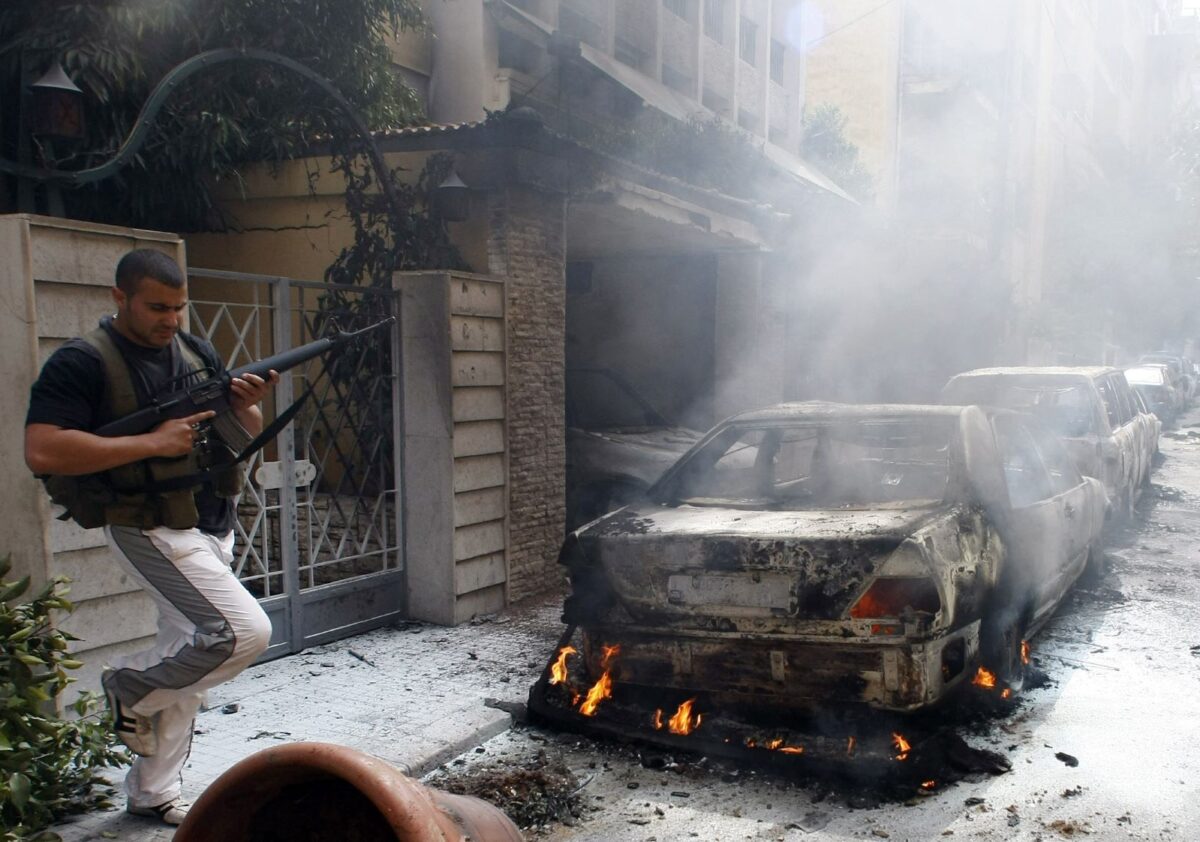
Seventeen years after Hezbollah’s armed takeover of Beirut on May 7, 2008, much has changed: but not in the ways that matter most
Today, Hezbollah is weaker than ever. This would seem, on the surface, like the resolution of the crisis that exploded in 2008 when the group forcefully reminded the country that no decision could be taken without its approval. But this weakening has not come from a Lebanese reckoning, nor from a national process of reform, accountability, or institutional growth. It came from another war, one raging just south of us.
Israel has systematically dismantled much of Hezbollah’s operational capacity over the past months. The party that once threatened the state from within now finds itself more constrained than ever before. But let us not be fooled: this is not a Lebanese victory. It is merely another chapter in a regional conflict that continues to reshape us from the outside in.
And that is the tragedy. Because if Hezbollah is now less able to dominate our politics by force, we have still not solved the deeper problem that made May 7 possible in the first place. That problem is tribalism.
In Lebanon, politics is not about ideas, visions, or national projects. It is about identity groups masquerading as political parties. These groups often align themselves with external powers, transforming over time into local agents of foreign interests. They justify this with historical grievances, existential fears, or promises of protection. But the effect is always the same: Lebanon becomes a battleground for someone else’s war. And our leaders become functionaries of agendas that are not ours.
This is how we got to May 7. And this is how we remain stuck there.
Yes, today the party that dominated the post-2008 order has been weakened. But the sectarian ecosystem that enabled it remains fully intact. The informal rules of our politics, the ones that say force works, that loyalty to your sect comes before loyalty to the nation, that institutions are tools not safeguards have not changed.
Instead, we pretend. We pretend we can revive the economy, host a thriving summer season, welcome regional airlines back, and rebuild a capital city without ever confronting the rot at the core of our system. We want 2025 to look like 2004. Or for some, 1950. But nostalgia is not salvation.
A state cannot be built on tourism and temporary stability. It must be built on a shared understanding of who we are and how we want to live together. This means revisiting our model of governance. Reimagining the social contract. Asking the hard, often uncomfortable questions about whether we can agree on the most basic commonalities; on citizenship, on accountability, on memory, on sovereignty.
And yes, all of this must come with justice. Because there can be no peace without memory. No progress without reckoning. And certainly no future without a shared sense of responsibility.
May 7 should never have happened. But what would be worse is to allow its lessons to fade. Because May 7 wasn’t just a moment in time. It was a symptom of a system. And until we confront that system, the shadow of May will always loom.
Ramzi Abou Ismail is a Political Psychologist and Senior Research Fellow at the Institute for Social Justice and Conflict Resolution at the Lebanese American University.
The views in this story reflect those of the author alone and do not necessarily reflect the beliefs of NOW








